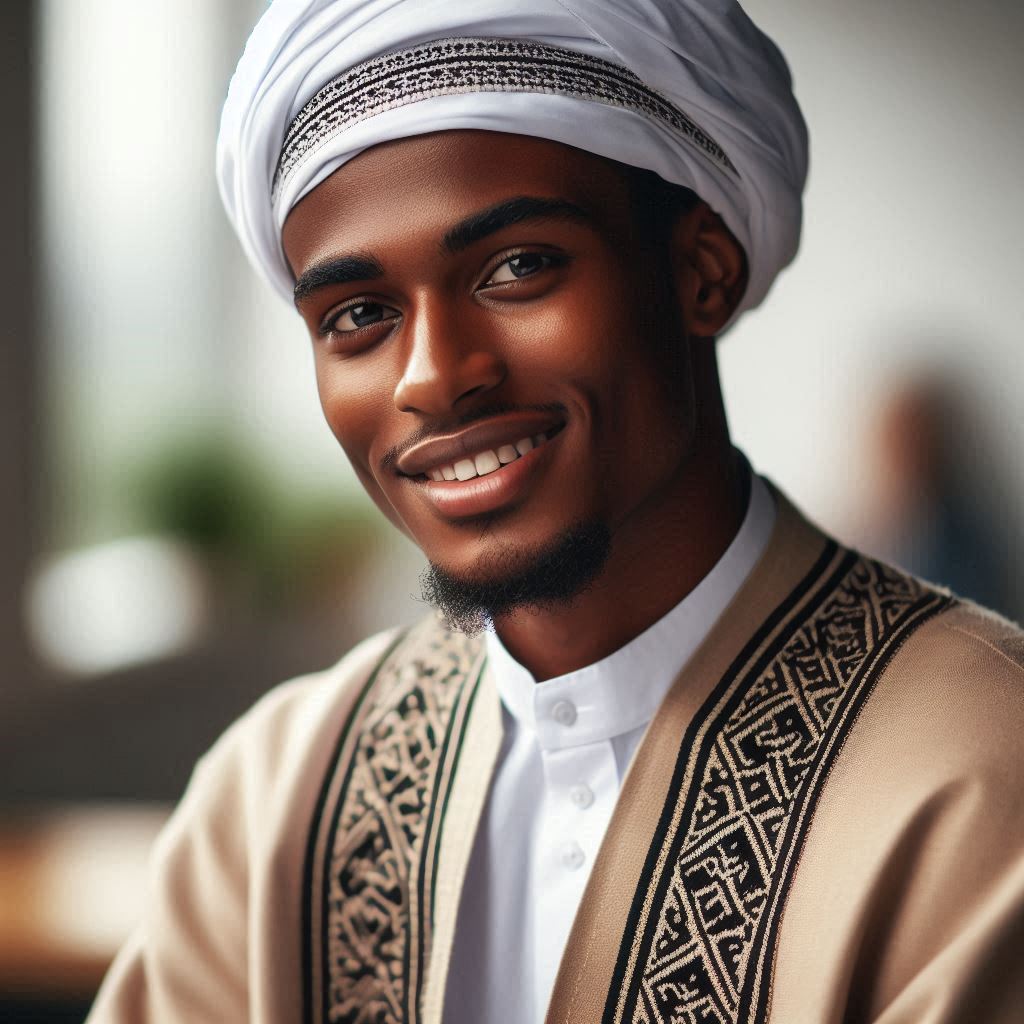Introduction
Nigerian religious studies explore the nation’s rich spiritual traditions and diverse belief systems.
Key figures in this field have significantly shaped its development, enriching both academic and practical perspectives.
Brief Overview of Religious Studies in Nigeria
Religious studies in Nigeria span across various traditions, including Islam, Christianity, and indigenous practices.
Nigerian universities offer programs dedicated to this multifaceted discipline.
Scholars analyze religious texts, rituals, and the interplay between religion and society.
The field fosters interfaith dialogue and promotes a deeper understanding of Nigeria’s religious diversity.
Importance of Key Figures in Shaping the Field
Key figures have played crucial roles in the advancement of religious studies in Nigeria.
These scholars and leaders contribute significantly through their research, teachings, and community engagement.
Professor Bolaji Idowu, a prominent theologian, pioneered the study of African traditional religions within Christian contexts.
His work bridged the gap between indigenous beliefs and Christianity, enriching theological discourse.
Dr. Yusuf Bala Usman, a historian, explored the impact of Islam in Northern Nigeria.
His insights into the historical and cultural contexts of Islam have been invaluable.
Reverend Father Matthew Kukah, a Catholic priest, is renowned for his efforts in promoting interfaith dialogue.
He has authored numerous works on the intersection of religion and politics in Nigeria.
Professor Jacob Olupona’s comparative studies of African religions have provided a global perspective on Nigerian religious practices.
His contributions have been pivotal in placing Nigerian religious studies on the world map.
These key figures have not only advanced academic scholarship but also influenced religious practice and policy.
Their work encourages respect for religious diversity and fosters mutual understanding among different faith communities.
In essence, the contributions of key figures in Nigerian religious studies are indispensable.
They have shaped the field through rigorous scholarship and active engagement with religious communities.
Their legacy continues to inspire new generations of scholars and practitioners.
Early Pioneers in Nigerian Religious Studies
When it comes to the study of religion in Nigeria, there are several key figures who have made significant contributions to the field.
These early pioneers have laid the groundwork for understanding the religious landscape of Nigeria and have helped shape the way we approach the study of religion in the country.
Reverend Samuel Johnson
Rev. Samuel Johnson was a prominent figure in the field of Nigerian religious studies.
He was one of the first scholars to document the traditional religious practices of the Yoruba people.
Johnson’s work, particularly his book “The History of the Yorubas,” is considered a foundational text in the study of Yoruba religion.
His detailed accounts of Yoruba myths, rituals, and beliefs have provided valuable insights into the religious worldview of the Yoruba people.
Johnson’s research laid the groundwork for further scholarship on indigenous Nigerian religions and continues to be cited by scholars today.
John Mbiti
John Mbiti was a Kenyan-born theologian and philosopher known for his work on African traditional religions.
He played a significant role in shaping the study of religion in Nigeria and across Africa.
Mbiti’s book “African Religions and Philosophy” is a seminal work that has influenced generations of scholars in the field.
His emphasis on the importance of understanding African religions on their own terms has been crucial in decolonizing the study of religion in Africa.
Mbiti’s contributions have helped to legitimize the study of indigenous African religions and have paved the way for more nuanced and inclusive approaches to the study of religion.
E. A. Ayandele
E. A. Ayandele was a Nigerian historian and scholar who made significant contributions to the study of religion in Nigeria.
His research focused on the history of Christianity in Nigeria and its interactions with indigenous religions.
Ayandele’s book “Holy Johnson: Pioneer of African Nationalism” is a key text in the study of Nigerian religious history.
He explored the ways in which Christianity has been adapted and integrated into Nigerian society, as well as its impact on traditional religious practices.
Ayandele’s work has shed light on the complex dynamics of religious change and continuity in Nigeria and has influenced scholars in the field.
Early pioneers in Nigerian religious studies have profoundly impacted the field. They paved the way for future scholars.
Their work encourages further exploration of Nigeria’s rich and diverse religious traditions.
Transform Your Career with Expert Guidance
Get personalized mentorship consulting that’s tailored to your unique path. Our expert advice is actionable and exclusive.
Get StartedRead: Nigerian Film Industry: Growth and Challenges
Contemporary scholars in Nigerian religious studies
Mercy Oduyoye
Mercy Oduyoye is a prominent figure in Nigerian religious studies, focusing on African women’s theology.
She has contributed significantly to the discourse on gender, spirituality, and empowerment in the African context.
Her work emphasizes the importance of recognizing indigenous African religious practices and traditions.
Jacob K. Olupona
Jacob K. Olupona is another key figure in Nigerian religious studies, with expertise in African religions.
He has written extensively on Yoruba religion, highlighting its influence on African diasporic communities.
Olupona’s research delves into the intersection of religion, culture, and society in Nigeria and beyond.
Funmi T. Olopade
Funmi T. Olopade is a respected scholar in Nigerian religious studies, specializing in African spirituality.
Her work explores the impact of traditional African beliefs on contemporary religious practices in Nigeria.
Olopade’s research sheds light on the rich spiritual heritage of Nigeria and its relevance in today’s world.
Read: Impact of Social Media on Nigerian Arts
Influence of key figures on religious discourse in Nigeria
Key figures on religious discourse in Nigeria
- Pastor Enoch Adejare Adeboye: The General Overseer of the Redeemed Christian Church of God has played a significant role in shaping religious discourse in Nigeria.
- Sheikh Ibrahim Saleh Al-Hussein: A prominent Islamic scholar, his teachings have influenced the Muslim community and sparked important discussions on faith.
- Archbishop John Onaiyekan: As a Catholic leader, Archbishop Onaiyekan has contributed to the dialogue between different religious groups in Nigeria.
- Prof. Sambra S. Zaki: An academic and author, Prof. Zaki’s research on religious studies has deepened our understanding of faith in Nigeria.
- Pastor Tunde Bakare: Known for his outspoken views, Pastor Bakare has challenged traditional beliefs and fostered debate on religious issues.
Impact on academic research and writing
These key figures have inspired a new generation of scholars to study religious studies in Nigeria, leading to a flourishing academic field.
Their work has been instrumental in broadening the scope of research on religion, ensuring a more comprehensive understanding of faith in the country.
By publishing books and articles on religious topics, these figures have enriched the academic discourse and expanded our knowledge of different faith traditions.
Role in promoting interfaith dialogue and understanding
Through their teachings and interactions, these key figures have promoted peace and harmony among followers of different religions in Nigeria.
They have participated in interfaith conferences and events, fostering mutual respect and understanding between Christians, Muslims, and other religious groups.
By engaging in dialogue with leaders of other faiths, these figures have encouraged tolerance and cooperation, creating a more inclusive religious community in Nigeria.
Read: How to Start a Career in Nigerian Performing Arts

Discover More: Cultural Influences in Nigerian Film and TV Production
Uncover the Details: The Future of Film and TV Production in Nigeria
See Related Content: Nigerian Diaspora: Maintaining Native and European Languages
Challenges Faced by Key Figures in Nigerian Religious Studies
When it comes to the field of Nigerian religious studies, key figures often face various challenges that impact their work and research.
Some of the major challenges include:
Lack of Funding and Resources
One of the primary challenges faced by key figures in Nigerian religious studies is the lack of adequate funding and resources to support their research endeavors.
Without proper funding, researchers struggle to conduct in-depth studies and produce valuable insights.
Resistance from Traditional Religious Leaders
In Nigeria, traditional religious leaders hold significant influence over their communities.
Key figures in religious studies may face resistance from these leaders who view academic research as a threat to their authority and beliefs.
This can hinder the progress of research and limit access to valuable information.
Political Interference in Academic Freedom
Political interference in academic freedom is another challenge that key figures in Nigerian religious studies encounter.
Government policies and regulations can restrict the scope of research, limit the dissemination of findings, and impede the academic independence of researchers.
This interference can affect the quality and integrity of research in the field.
In fact, key figures in Nigerian religious studies face multiple challenges that impact their ability to conduct research, produce valuable insights, and contribute to the field.
Researchers, institutions, policymakers, and traditional leaders must collaborate to address these challenges.
Together, they can create an environment fostering academic freedom.
They should aim for research excellence and advance knowledge in Nigerian religious studies.
Read: Famous Nigerian Dance Groups and Choreographers
Uncover the Details: Comparative Politics vs International Relations Nigeria
See Related Content: Technological Integration in African and Asian Studies
Future outlook for Nigerian religious studies
As Nigerian religious studies continue to evolve and grow, it is important to look at the future outlook for this field.
Exploring new research areas ensures Nigerian religious studies stay relevant. Cultivating future scholars guarantees longevity.
The future of Nigerian religious studies is bright, with numerous opportunities for research and scholarship.
As the field continues to expand, new areas of interest are emerging, offering exciting prospects for scholars and students alike.
Potential Areas for Research and Growth
- Exploration of indigenous Nigerian religious practices
- Study of the impact of globalization on Nigerian religious beliefs
- Investigation of the role of religion in shaping Nigerian politics
- Analysis of the intersection of Christianity and Islam in Nigeria
- Examination of the influence of colonialism on Nigerian religious traditions
These potential areas for research and growth represent just a few of the many avenues available to scholars in Nigerian religious studies.
By delving into these topics, researchers can deepen our understanding of the rich tapestry of religious beliefs and practices in Nigeria.
Importance of Cultivating the Next Generation of Scholars
One of the key factors in ensuring the continued success of Nigerian religious studies is the cultivation of the next generation of scholars.
By mentoring and supporting young researchers, we can pass on valuable knowledge and expertise, ensuring that the field continues to thrive.
It is essential to provide opportunities for young scholars to engage with established researchers and practitioners in the field.
This mentorship can help them develop their skills, expand their networks, and gain exposure to cutting-edge research in Nigerian religious studies.
Additionally, fostering a sense of community among scholars is vital for the growth of the field.
By creating forums for collaboration and discussion, we can encourage interdisciplinary research and foster innovative approaches to studying Nigerian religious practices.
Ultimately, the future of Nigerian religious studies depends on the commitment and dedication of scholars and researchers at all levels.
By prioritizing the cultivation of the next generation of scholars and supporting innovative research, we can ensure that the field continues to thrive and evolve in the years to come.
Learn More: The Influence of Traditional Attire on Nigerian Fashion
Delve into the Subject: English Language Programs: Admission Requirements
Conclusion
Nigerian religious studies has been greatly influenced by key figures such as Reverend Josiah Ransome-Kuti, known for his contributions to Christian mission work and education.
Another prominent figure is Sheikh Ibrahim Niasse, a Sufi scholar who played a significant role in the spread of Islam in Nigeria.
These key figures have shaped the religious landscape of the country.
It is essential to recognize and appreciate their work in promoting interfaith dialogue, education, and community development.
Their legacies continue to inspire future generations of scholars and religious leaders in Nigeria.
As we reflect on the legacy of these key figures, let us honor their memory by supporting initiatives that promote religious understanding and tolerance in Nigeria.
By acknowledging the contributions of these outstanding individuals, we can build a more inclusive and harmonious society that celebrates diversity and fosters mutual respect among different religious communities.
Let us continue to study and learn from the work of key figures in Nigerian religious studies, as they have paved the way for a brighter future for all Nigerians.




